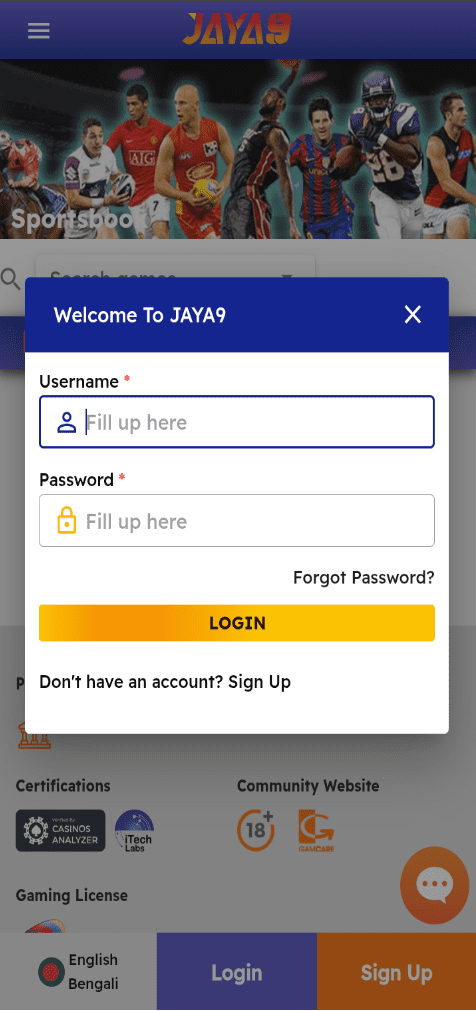International Regulations Affecting Bangladesh Players
In the vibrant landscape of sports, players from Bangladesh are making their presence felt on international stages. However, these athletes must navigate a complex web of international regulations and standards. This article delves into the various regulations that affect Bangladesh players, shedding light on how they impact their careers and opportunities in the global arena. For players looking to enhance their careers, resources like International Regulations Affecting Bangladesh Players joya9 can provide critical support and guidance.
The Importance of Understanding International Regulations
For athletes from Bangladesh, understanding international regulations is crucial not just for compliance but also for ensuring fair play and equal opportunities. These regulations often encompass player transfers, anti-doping policies, contract stipulations, and eligibility criteria set by governing bodies such as FIFA, ICC, and others. By adhering to these regulations, players can avoid penalties and safeguard their professional reputation.
FIFA Regulations on Player Transfers
One of the significant areas affecting football players in Bangladesh is FIFA’s transfer regulations. These rules govern how players can move between clubs, including conditions for international transfers. For Bangladeshi players aspiring to join foreign clubs, understanding these regulations is essential.
FIFA’s Transfer Matching System (TMS) aims to eliminate fraud and ensure transparency. Players and clubs must register their contracts through this system, ensuring that all transactions are legit and properly documented. Bangladesh clubs must also be aware of the homegrown player rules and quota systems implemented by many foreign leagues, which can directly affect the opportunities available to Bangladeshi players.
ICC Regulations for Cricketers
In cricket, the International Cricket Council (ICC) creates various regulations that impact Bangladeshi players. The ICC has strict guidelines concerning player eligibility, anti-doping policies, and match-fixing. Cricketers must comply with these rules to retain their eligibility to play in international matches.
The ICC Anti-Corruption Code is particularly relevant as it lays out the framework for preventing corruption in cricket, which has historically posed challenges for many players from emerging cricket nations like Bangladesh. Understanding these regulations helps players build their careers with integrity and professionalism.
Anti-Doping Regulations
Every athlete must adhere to anti-doping regulations, which are enforced by international sports federations. The World Anti-Doping Agency (WADA) outlines these rules, which apply globally, including for Bangladeshi players competing in any international sporting event.
Players must be educated about prohibited substances and testing procedures. This knowledge helps them avoid accidental violations that could lead to suspensions or bans, severely impacting their careers. Ongoing education on these regulations is essential for athletes at all levels.
Contract Regulations and Labor Laws
Another area of concern for Bangladeshi players is the legality and stipulations of contracts with clubs. Players need to be aware of international labor laws that govern working conditions, rights to compensation, and dispute resolution. In many cases, players from Bangladesh may face exploitation due to their limited bargaining power.
It is essential for players to seek legal advice and support when entering into contracts with clubs, both domestically and abroad. Organizations like FIFA provide resources for players to understand their rights and obligations under various contractual agreements.
Compliance with National and International Regulations
For a player from Bangladesh aspiring to compete at an international level, compliance with both national regulations (enforced by the Bangladesh Football Federation or the Bangladesh Cricket Board) and international standards are paramount. Developing a solid understanding of both sets of regulations can enable players to maximize their potential and operationalize their ambitions more effectively.
Furthermore, players should be aware that different countries may have varying regulations regarding visas and work permits for foreign athletes. Being informed about these regulations ensures smooth transitions and helps avoid potential legal issues that could derail career opportunities.
The Role of Governing Bodies
Local sports governing bodies in Bangladesh play a crucial role in guiding players through these regulations. They can provide resources, training, and legal support to ensure that athletes fully understand their rights and obligations. Collaboration between international sporting organizations and local federations is vital for the growth of sports and the preservation of player rights.
Conclusion
As international sports continue to evolve, players from Bangladesh face both challenges and opportunities in navigating the myriad of regulations that affect their careers. By educating themselves on these requirements, players can uphold their integrity, pursue their ambitions, and contribute positively to the world of sports.
Ultimately, the journey of a Bangladeshi athlete is a complex interplay of talent, opportunity, and a keen understanding of the international regulatory landscape. With the right resources and support, they can thrive on the global stage.




